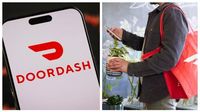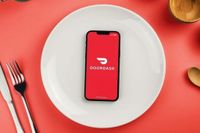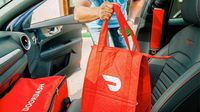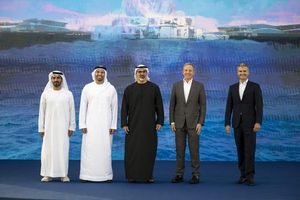In a significant shift in consumer convenience, DoorDash has announced a partnership with Klarna that will allow customers to buy now and pay later for their food deliveries. As of March 26, 2025, this new payment option enables users to either pay immediately, split their total into four interest-free installments for orders over $35, or defer payments entirely to align with their payday. This move comes amid the growing popularity of buy-now-pay-later (BNPL) services, which reached a staggering $18 billion during the 2024 holiday shopping season.
While this partnership aims to enhance flexibility for consumers, it has raised eyebrows among financial experts who warn of potential pitfalls. “This partnership empowers customers with maximum choice and control over how they pay,” said a DoorDash spokesperson. However, critics argue that splitting payments for fast food could lead to increased debt and impulsive spending.
Financial guru Dave Ramsey, known for his staunch opposition to debt, reacted to the news with visible frustration, sharing a GIF of himself burying his head in his hands. He has long advocated against using debt for unnecessary purchases, emphasizing that financing fast food is a troubling trend. Ramsey's sentiments echo the concerns of many financial advisors who caution against the impulsive nature of such payment plans.
According to Robert Lawless, a law professor at the University of Illinois specializing in consumer finance, the BNPL model is fraught with risks. "It certainly doesn't seem like a positive development except for Klarna and maybe DoorDash," he remarked. Users may find themselves facing late fees and overdraft charges if they miss payments, potentially turning a $20 burrito into a $70 expense.
The BNPL industry has seen explosive growth in recent years, with the total value of loans originating from these services skyrocketing from $2 billion in 2019 to $34 billion in 2022, as reported by the Consumer Financial Protection Bureau. Initially, these services were primarily used for larger purchases, but companies have increasingly encouraged consumers to use them for smaller, everyday items, including food delivery.
Anastasiya Ghosh, a marketing professor at the University of Arizona, noted that the trend of allowing BNPL for smaller purchases signals a new revenue stream for businesses. “We’re seeing it for smaller and smaller and smaller purchases,” she explained. The convenience of these payment options can lead to increased spending, as consumers may feel more inclined to indulge when they can spread payments over time.
A June 2023 survey by the Federal Reserve Bank of New York revealed that certain demographics, including women, renters, and low-income individuals, are more likely to utilize BNPL services. This raises concerns about financial literacy and the potential for consumers to accumulate debt without fully understanding the implications.
Critics of the DoorDash-Klarna partnership argue that it may exacerbate existing financial struggles for many consumers. With Americans holding nearly $18 trillion in household debt as of late 2024, including significant credit card debt, the introduction of BNPL for food delivery could further complicate their financial situations. Gen Z, for instance, already carries an average debt of nearly $30,000, while Gen X leads with over $157,000.
Despite the potential downsides, DoorDash maintains that its partnership with Klarna is about more than just food delivery. The company has indicated that over 25% of its customers are already shopping beyond restaurants, including categories like retail and electronics. This expansion could make the BNPL service appealing for a wider range of purchases, although it raises the question of whether consumers should be financing everyday items.
The reaction on social media has been mixed, with many users humorously critiquing the idea of financing fast food. Some have taken to platforms like X (formerly Twitter) to express their disbelief, using memes to illustrate the absurdity of having "Chipotle debt." The humorous backlash highlights a growing awareness of the potential consequences of BNPL services.
As DoorDash and Klarna prepare to roll out this new payment option, financial experts urge consumers to think critically about their spending habits. Nadine Chabrier, senior policy counsel at the Center for Responsible Lending, cautioned, “People have the free will to make a choice of the way in which they want to pay for something, but there may be unintended consequences.”
In a world where convenience often trumps caution, the allure of BNPL services is undeniable. However, consumers must weigh the immediate gratification of a food delivery against the long-term financial implications. As the BNPL trend continues to grow, it remains to be seen whether it will empower consumers or lead them further into debt.
As the partnership between DoorDash and Klarna unfolds, it serves as a reminder of the complexities surrounding modern consumerism. While flexibility in payment options can be beneficial, it is crucial for consumers to remain vigilant and informed about their financial choices.







